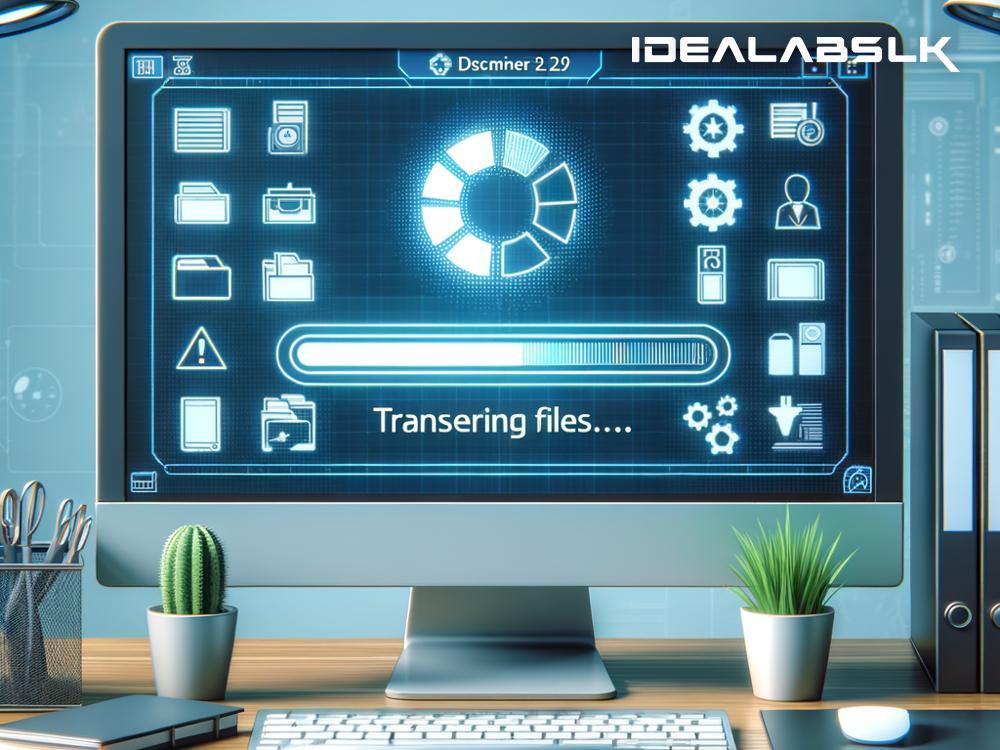How to Solve 'PC Freezes When Copying Large Files': A Step-by-Step Guide
Dealing with a freezing PC can be both frustrating and time-consuming, particularly when you're in the middle of copying large files. This common issue might seem daunting at first, but fear not! With the right approach, you can troubleshoot and solve this problem efficiently. In this article, we'll guide you through several practical steps to get your computer running smoothly again, making large file transfers a breeze.
Understanding the Problem
Before diving into the solutions, it's crucial to understand why your PC freezes when copying large files. Several factors can contribute to this issue, including insufficient system resources, outdated drivers, disk errors, or even malware infections. When your computer lacks the resources or faces obstacles during the file transfer process, it might freeze or slow down significantly.
Step 1: Free Up System Resources
One of the first steps you should take is to ensure your PC has enough system resources available. Close any unnecessary applications or processes running in the background. These can consume valuable memory and processing power, leading to system freezes during demanding tasks like large file transfers.
Step 2: Update Your Drivers
Outdated or corrupted drivers, especially those related to your hard drive or USB ports, can cause your PC to freeze. Visit the website of your PC or motherboard manufacturer to download the latest drivers. Installing these updates can enhance compatibility and improve the overall performance of your system.
Step 3: Run Disk Cleanup and Defragmentation
A cluttered or fragmented hard drive can slow down file transfers. Use the built-in Disk Cleanup tool to remove temporary files and system junk that may be bogging down your PC. Additionally, consider defragmenting your hard drive (if it's an HDD) to organize the data more efficiently. However, if you're using an SSD, skip the defragmentation step, as it's unnecessary and could shorten the lifespan of your SSD.
Step 4: Check for Disk Errors
Disk errors can also lead to system freezes. Fortunately, Windows provides a handy tool to check and repair disk errors. Open 'This PC', right-click the drive you're having issues with, select 'Properties', then go to the 'Tools' tab and click on 'Check'. Follow the on-screen instructions to detect and fix any errors that could be causing the freezes.
Step 5: Scan for Malware
Malware infections can significantly impact your PC's performance, including causing freezes during file transfers. Run a full system scan with your preferred antivirus software to detect and remove any threats. Keeping your antivirus software up to date can also help prevent future infections.
Step 6: Increase Virtual Memory
Sometimes, large file transfers can exceed your physical RAM capacity, leading to freezes. Increasing your virtual memory can help manage the load. To do this, go to 'System Properties', click on 'Advanced system settings', and under the 'Performance' section, click 'Settings'. Then, navigate to the 'Advanced' tab, click on 'Change' under Virtual Memory, and set a custom size. As a rule of thumb, setting the initial size to 1.5 times and the maximum size to 3 times your physical RAM should suffice.
Step 7: Consider Hardware Upgrades
If none of the above solutions resolve the issue, your PC might be struggling with the hardware demands of transferring large files. Investing in a RAM upgrade or switching to a solid-state drive (SSD) can significantly improve your system's performance and stability during such tasks.
Conclusion
A PC freezing while copying large files can disrupt your workflow and test your patience. However, by methodically going through these steps, you're likely to diagnose and fix the issue, restoring smooth and efficient file transfers. Remember, maintaining your PC, keeping software up to date, and regularly checking for hardware compatibility can prevent many such problems from occurring in the first place. With your PC now capable of handling large file transfers seamlessly, you can focus on what matters most without unnecessary interruptions.

